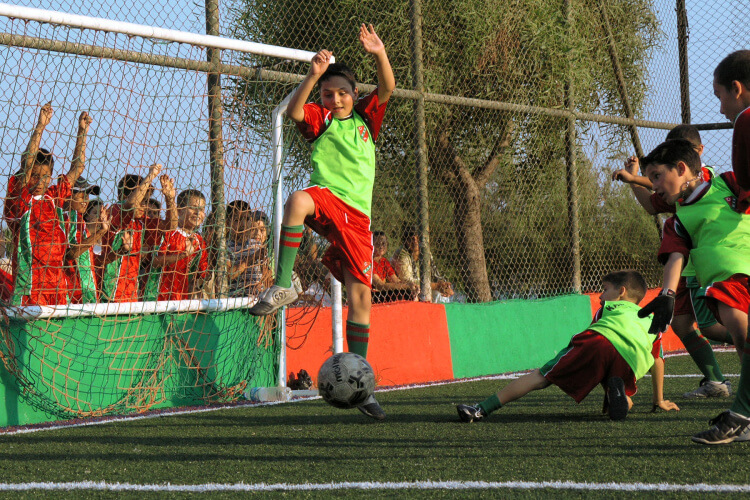If you were asked to identify who your role models are, could you easily list the individuals and share the reasons why each has played such an important role in your life? Are these individuals role models because they’ve accomplished something you admire? Are these people your role models because they’ve modeled and encouraged ways to live your life that are helping you accomplish your goals and dreams? In observing your role models, are their ethics and morals clear in the advice and guidance they offer?

Role models are people who influence our lives through modeling positive life lessons (Whitbourne, 2013). Merriam-Webster dictionary defines a role model as “someone who another person admires and tries to be like” (Role Model, n.d.). Whitbourne (2013) argues that ethical role models are crucial in our lives because they help motivate and inspire people to engage in sound, ethical decision-making.
Is choice of a role model determined by the individual’s job title, their actions, their beliefs, or some combination of these elements? It seems that individuals who get more attention and recognition as role models aren’t always those whose behavior is considered notable or ethical, but rather are people prominent in the media because of their actions (Whitbourne, 2013). Hall of Fame basketball star Charles Barkley once said, I’m not a role model. Just because I dunk a basketball doesn’t mean I should raise your kids (Barkley, n.d.). At the time, his comments generated a lot of discussion about whether or not athletes should be viewed as role models. But as others have pointed out, given their visibility in society, do athletes really have a choice as to whether or not others see them as role models? (Lawhead, n.d.)
In October 2014, a school shooting at Marysville-Pilchuck High School in a tiny Washington State community shook the nation. Students’ lives were lost at the hands of one of their peers. Sadly, this is far from an isolated event. In just two years since the 2012 tragedy in Newtown, Connecticut, over 15 school shootings involving a minor or adult actively shooting inside or near a school have occurred (Fantz, Knight, & Wang, 2014).
Questions and opinions about how and why tragedies like this continue are many. Mental health, bullying, and gun violence are topics that permeate discussions as society attempts to understand and find an explanation for these senseless acts. But sometimes lost in the conversation is what happens to a community as it deals with the aftermath. How does a community that feels devastated heal and move forward? How do the young people whose sense of safety is shattered begin to feel safe again and continue to learn, grow, and live?
It’s often said that raising children takes a village. Such sentiment describes the role and importance of many people when raising children and preparing them for the challenges they’ll face in life. Fortunately, there are many places for young people to learn lessons that will prepare them to become healthy and happy adults. And there are many individuals who have opportunities to serve as role models and help facilitate this learning process – parents, family members, teachers, religious leaders, coaches, politicians, athletes, and more.
For Marysville-Pilchuck High School students, continued engagement in organized activities such as sports, which emphasizes connections to teammates is one way to reinforce the importance of support. Lommers (2014) reported that Sue Bird, a United States Olympian and an all-star for the WNBA Seattle Storm basketball team, then-associate head coach Brian Agler, and associate head coach Jenny Boucek, joined in a practice with the girls’ basketball team at MPHS. The intent of the gesture was to recognize the resiliency and perseverance of a team and a community that has been through a lot (Lommers, 2014). Bird, a role model on the court and in life for many participants and fans of women’s basketball said, “As athletes we have a platform and that’s something that a lot of us take very seriously. Any time you can have a positive impact on anyone, you want to make the most out of that opportunity and that’s really what today is about” (Lommers, 2014).
The special opportunity to play with arguably one of the greatest guards in the women’s game was a positive experience for the young women of the MPHS girls’ basketball team, but the trip also had a significant impact on Bird, Agler, and Boucek (Lommers, 2014). Impressed with the resiliency of the group, they asked the team to sign a basketball that they would take back with them to the Seattle Storm. Bird shared, “There’s life outside of basketball and I think sometimes you need to take a step back and realize that. That ball will definitely be a reminder for our team (Lommers, 2014). As the members of the MPHS girls’ basketball team proved, and as Bird, Agler, and Boucek learned, role models are everywhere.
As a teacher or coach, I encourage you to think about your role beyond the X’s and O’s. Never forget that you are someone who impacts the lives of youth and remember that your actions influence your students’ paths to growth. Think carefully about what your words and actions model. And let’s all of us strive to make a positive difference in the lives of others, but especially our youth. You matter.
References
Barkley, C. (n.d.). Charles Barkley quotes. Brainy Quote.
Fantz, A., Knight, L., & Wang, K. (2014, June 19). A closer look: How many Newtown- like school shootings since Sandy Hook? CNN.
Lawhead, W. F. (n.d.). The importance of role models. The Philosophical Journey: An Interactive Approach.
Lommers, A. (2014, December 10). Storm’s Sue Bird praises resilience of MPHS basketball team. HeraldNet.
Role model. (n.d). In Merriam-Webster Dictionary online.
Whitbourne, S.K. (2013, November 19). We all need role models to motivate and inspire us. Psychology Today.

